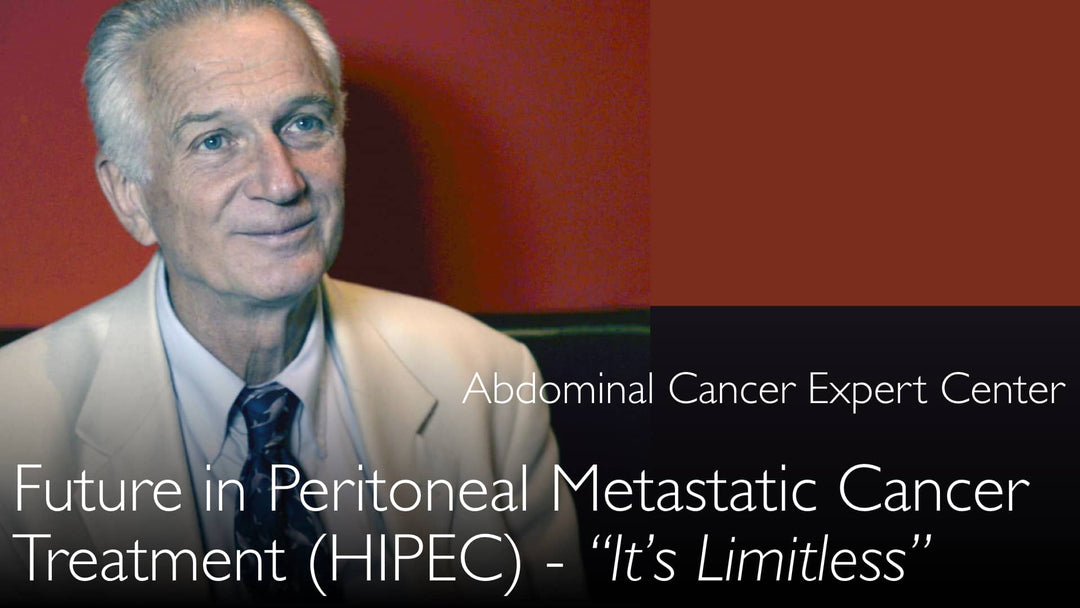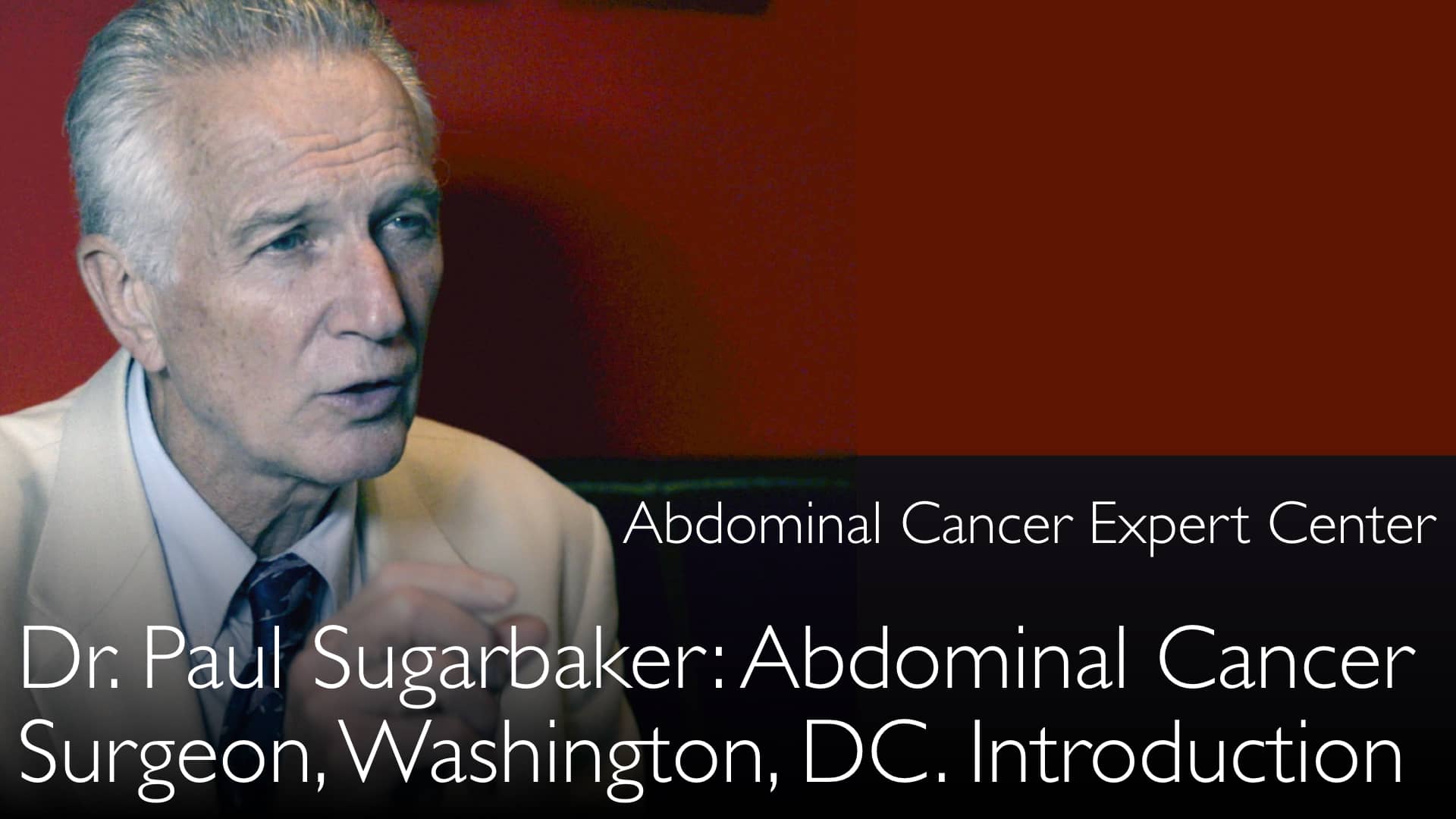복막 전이암 치료 분야의 선도적 전문가인 Paul Sugarbaker 박사(MD)가 세포감소수술과 고용량 항암제 복강내 온열화학요법(HIPEC)의 미래를 전망합니다. 그는 수술 교육과 질적 관리의 글로벌 과제를 심도 있게 논의하며, 개인 맞춤형 항암화학요법(chemotherapy) 최적화 방안을 제시합니다. 또한 이 고도화된 치료를 개발도상국에 도입하기 위한 노력을 강조합니다. 복부 전이암 치료의 미래는 무한한 가능성을 지닌 것으로 기대됩니다.
진행성 복막 전이 치료: 종양감축수술 및 고열 복강 내 화학요법(HIPEC)
섹션 바로가기
복막암 치료의 선구적 접근
Paul Sugarbaker 박사는 복막 전이 치료를 개척한 저명한 위장관 암 외과의사입니다. 그는 종양감축수술과 고열 복강 내 화학요법(HIPEC) 절차를 개발했으며, 이는 현재 Sugarbaker 술식으로 알려져 있습니다. 이 결합 접근법은 육안으로 보이는 종양 침착물을 수술적으로 제거한 후 복강 내에서 직접 고열 화학요법을 시행하는 방식입니다. Anton Titov 박사는 Sugarbaker 박사와의 대화에서 이 치료법이 40명 규모의 소규모 심포지엄에서 출발해 1,000명에 가까운 참가자가 모이는 국제 학회로 성장한 과정을 언급했습니다.
화학요법 요법 최적화
가장 중요한 미래 방향은 종양감축수술과 함께 사용되는 화학요법의 최적화입니다. Paul Sugarbaker 박사는 개별 환자에게 최적의 약물이 아직 완전히 규명되지 않았음을 강조합니다. 이는 대장암, 난소암, 위암 등 특정 암 종류에 맞게 HIPEC 약물 조합과 전신 화학요법을 맞춤화하는 것을 의미합니다. 의학적 세컨드 오피니언을 통한 정밀의학은 진행성 4기 암 환자에게 가장 효과적인 치료 계획을 선택하는 데 도움이 될 수 있습니다.
수술의 질과 교육
현재 가장 큰 과제는 고품질 종양감축수술을 수행할 수 있는 외과의사 교육입니다. Paul Sugarbaker 박사는 미세 수준까지 암을 근절하는 수술이 목표라고 밝힙니다. 이는 1% 미만의 사망률과 10% 미만의 중증 합병증률로 달성되어야 합니다. 교육용 동영상과 워크숍을 통한 지식 확산은 이러한 최선의 관행을 전 세계에 안전하게 전파하는 데 중요합니다.
암 수술의 글로벌 과제
선진국과 개발도상국 간의 수술 전문성 격차는 상당합니다. Paul Sugarbaker 박사는 중동, 남미, 아시아 지역의 암 수술 질적 수준이 큰 과제임을 지적합니다. 쿠웨이트, 사우디아라비아, 이집트, 멕시코 등지에서 교육 프로그램을 시작하기 위한 노력이 진행 중입니다. Paul Sugarbaker 박사는 하버드와 국립보건원(NIH)에서 받은 자신의 엘리트 교육이 보편적으로 이용 가능하지 않아 글로벌 교육이 주요 초점이 되고 있음을 언급합니다.
종양학의 미래 방향
Paul Sugarbaker 박사는 복막 전이암 치료의 미래를 무한하다고 표현합니다. 이 분야는 전 세계적 환자 결과 개선에 초점을 맞추며 지속적으로 진화하고 있습니다. Anton Titov 박사는 진행성 복부 암 환자를 위한 이 작업의 중요성을 강조합니다. 수술적 정밀성과 최적화된 국소 화학요법의 결합은 한때 치료가 불가능했던 전이성 질환에 치유 가능성을 제공합니다.
전체 대화록
Anton Titov 박사: Sugarbaker 박사님, 귀하와 동료들이 복막 전이암 치료 절차를 개척하고 개발했습니다. 이는 현재 Sugarbaker 술식으로 알려져 있습니다. Sugarbaker 술식은 종양감축수술과 고열 복강 내 화학요법(HIPEC)입니다.
Anton Titov 박사: 이 복막 전이암 치료법의 미래 전망은 어떻게 보시나요? 향후 몇 년 동안 Sugarbaker 술식이 어떻게 발전할 것이라고 보시나요? 귀하는 더 많은 복막 전이암 환자에게 종양감축수술과 고열 복강 내 화학요법(HIPEC)을 제공하기 위해 열심히 노력하고 계십니다.
Anton Titov 박사: 복막 전이암 치료의 미래는 무엇인가요?
Paul Sugarbaker 박사: 복막 전이암 치료의 미래는 무한합니다. 20년 전 우리는 첫 번째 복막 표면 종양학 국제 학회를 가졌습니다. 런던의 North Hampshire Hospital이라는 작은 병원에서 열렸습니다. 그 첫 번째 복막암 치료 심포지엄에는 약 30~40명이 참석했습니다.
Paul Sugarbaker 박사: 당시에는 복막 전이암 치료가 현재와 같은 방식으로 성장할 것이라고 전혀 예상하지 못했습니다. 내년 워싱턴 DC에서 우리는 전 세계에서 약 1,000명의 외과의사와 종양학자가 모여 최고의 복막 전이암 치료에 대해 논의할 것입니다.
Paul Sugarbaker 박사: 우리는 20년이 지난 지금, 복막 전이 치료의 방향성을 고민해 볼 것입니다. 우리는 아직 개별 복막 전이암 환자에게 사용할 최적의 약물을 찾지 못했습니다. 종양감축수술과 함께 시행되는 화학요법을 최적화해야 합니다.
Anton Titov 박사: "최적화"라는 표현이 적절합니다. 하지만 종양감축수술과 고열 복강 내 화학요법(HIPEC)에 대한 수술 기술 교육 측면에서 엄청난 과제가 있습니다.
Paul Sugarbaker 박사: 현재 시점에서 우리의 가장 큰 과제는 미세 수준의 암 전이 질환까지 제거하는 종양감축수술을 수행할 수 있는 외과의사를 교육하는 것입니다. 외과의사들은 1% 미만의 사망률과 10% 미만의 중증 합병증률로 종양감축수술을 수행해야 합니다.
Paul Sugarbaker 박사: 이것이 현재 우리 활동의 최우선 초점인 복막 전이암에서의 종양감축수술의 질입니다. 우리는 이 학회에서 동영상과 워크숍을 통해 암 외과의사들에게 사망률과 합병증률 감소 교육을 진행할 것입니다.
Paul Sugarbaker 박사: 동영상과 워크숍은 복막 전이암 치료의 최선의 관행 지식을 전 세계에 안전하게 확산시킬 수 있게 합니다. 고품질 종양감축수술은 미국, 유럽, 일본, 한국에서도 과제입니다.
Paul Sugarbaker 박사: 하지만 개발도상국은 어떨까요? 개발도상국에서의 암 수술 질은 엄청난 과제입니다. 이슬람권 이웃 국가들의 암 수술 질은 어떨까요? 우리는 현재 쿠웨이트와 사우디아라비아에서 복막암 수술 교육 활동을 시작하려고 노력하고 있습니다.
Paul Sugarbaker 박사: 이집트 카이로에서 예정된 복막암 수술 학회가 있습니다. 하지만 그곳의 수술 전문성 수준이 미국과 동일하지 않아 큰 과제입니다. 저는 하버드와 국립보건원(NIH)에서 훈련받았습니다. 상상할 수 있는 최고의 수술 교육을 받았습니다.
Paul Sugarbaker 박사: 우리는 전 세계적으로 그런 수준의 수술 교육을 갖추고 있지 않습니다. 남미는 고품질 암 수술 교육에서 거대한 과제입니다. 우리는 멕시코에서 암 외과의사 교육을 위한 대규모 노력으로 실제적인 진전을 이루었습니다.
Paul Sugarbaker 박사: 하지만 종양감축수술과 고열 복강 내 화학요법(HIPEC)은 미국과 유럽만을 위한 치료법일까요? 그렇지 않습니다. 종양감축수술과 고열 복강 내 화학요법(HIPEC)은 전 세계적으로 시작되어야 할 치료법입니다.
Anton Titov 박사: 그것은 엄청난 과제입니다.





